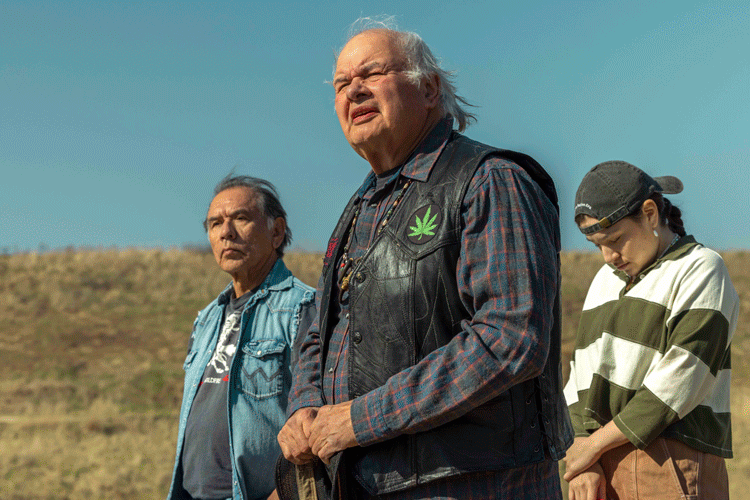ABC DEFENDS ‘AMERIKA’ MINISERIES
- Share via
NEW YORK — Beset by both Soviet and United Nations displeasure with a planned ABC miniseries called “Amerika,” the show’s author and the ABC official who commissioned it defended it Thursday, saying it doesn’t seek to engage in Soviet-bashing or U.N.-knocking.
Speaking at a hotel press conference held across the street from the towering glass-walled U.N. headquarters building here, Donald Wrye and ABC Entertainment President Brandon Stoddard, joined by “Amerika” co-star Robert Urich, took turns fielding questions about the 12-hour miniseries, tentatively scheduled to air in February.
The film, Stoddard said, basically asks how various Americans would act were their country taken over by a foreign power, in this case the Soviet Union. He called it a sort of “what would I do here, how would I behave?” drama.
Despite U.N. objections to certain scenes in the film, Stoddard said ABC has not and will not make concessions to the world body in the program’s content. The $34-million miniseries was produced and directed by Wrye, its author.
Last year, the Soviets expressed displeasure with the concept of “Amerika” (it depicts a drab, oppressed United States 10 years after a bloodless Soviet takeover and the subsequent start of a resistance movement). They saw it as another example of anti-Soviet sentiment in Hollywood as typified by such films as “Red Dawn.”
This year, it was the United Nation’s turn. U.N. officials who read the script of “Amerika” and last week saw a videocassette of excerpts from it are angered by its scenes of Soviet-controlled U.N. troops engaged in acts of oppression, a U.N. spokesman said. ABC didn’t provide either the scripts or the cassettes, he said, declining to say how they were acquired.
Since March, he said, U.N. Secretary General Javier Perez de Cuellar and his aides have at varied times sent letters to ABC, expressing concern about the depiction of U.N. forces and the agency’s familiar blue-and-white flags and logos in some scenes.
ABC’s latest reply, a U.N. official said, was an Aug. 20 letter from Capital Cities/ABC board chairman Thomas S. Murphy. The letter said in part that the film is fictional and that “it is not our intention to disparage even indirectly the United Nations.”
“We don’t feel it (the letter) meets our concerns,” the U.N. official said.
Murphy, asked about the U.N. complaints, said he understands those concerns, but that “Amerika” fictionally shows that the United Nations had been “co-opted by this foreign nation”--the Soviet Union. Thus, he said, “it obviously is not the U.N. that represents all the nations in the world today.”
When the objecting officials finally see the completed program, he added, “I think that their fears will be allayed.”
Stoddard didn’t venture that prediction Thursday. But he echoed Murphy’s explanation of the scenes of U.N. forces in “Amerika,” saying that “we’re not talking about the United Nations of today. We’re talking about the United Nations 10 years from now, when the Russians are occupying the United States.”
Though it wasn’t included in a one-hour, 35-minute clip of excerpts shown Thursday to reporters, he said, “it is clearly stated (in the film) that the Russians have co-opted the United Nations and that they are in control of the United Nations.”
Wrye, denying that the miniseries is an anti-Soviet exercise, said that “it is in no way another one of those films like ‘Red Dawn’ or ‘Rocky IV,’ ” nor is it intended “to express any kind of Paul Revere alarm that ‘The Russians are coming.’ ”
The major struggle in the modern world, Wrye said, basically is between totalitarian and democratic systems--and his film in part tries to compare those different systems. It seemed valid, he added, to use the Soviet system “as a comparison with what we have and what we so often ignore.”
He was asked if one of the film’s messages is to be wary of the Soviet Union.
“No,” he said. “I think we have the historic context to be wary of the Soviets. So I don’t think that’s something we need to trumpet (in the film).
“What I think we do need to trumpet is that our democracy, our society, will not survive just because it’s been here 200 years. . . it (the nation’s survival) has to do with the internal quality of the way we behave as individuals and citizens in a free society.”
Near the end of Thursday’s one-hour press conference, a reporter, saying that he of course didn’t want to elicit the outcome of the miniseries, nonetheless asked if its ending “will be reassuring to Americans?”
“Yes,” said Stoddard. “Very definitely.”
More to Read
The complete guide to home viewing
Get Screen Gab for everything about the TV shows and streaming movies everyone’s talking about.
You may occasionally receive promotional content from the Los Angeles Times.





